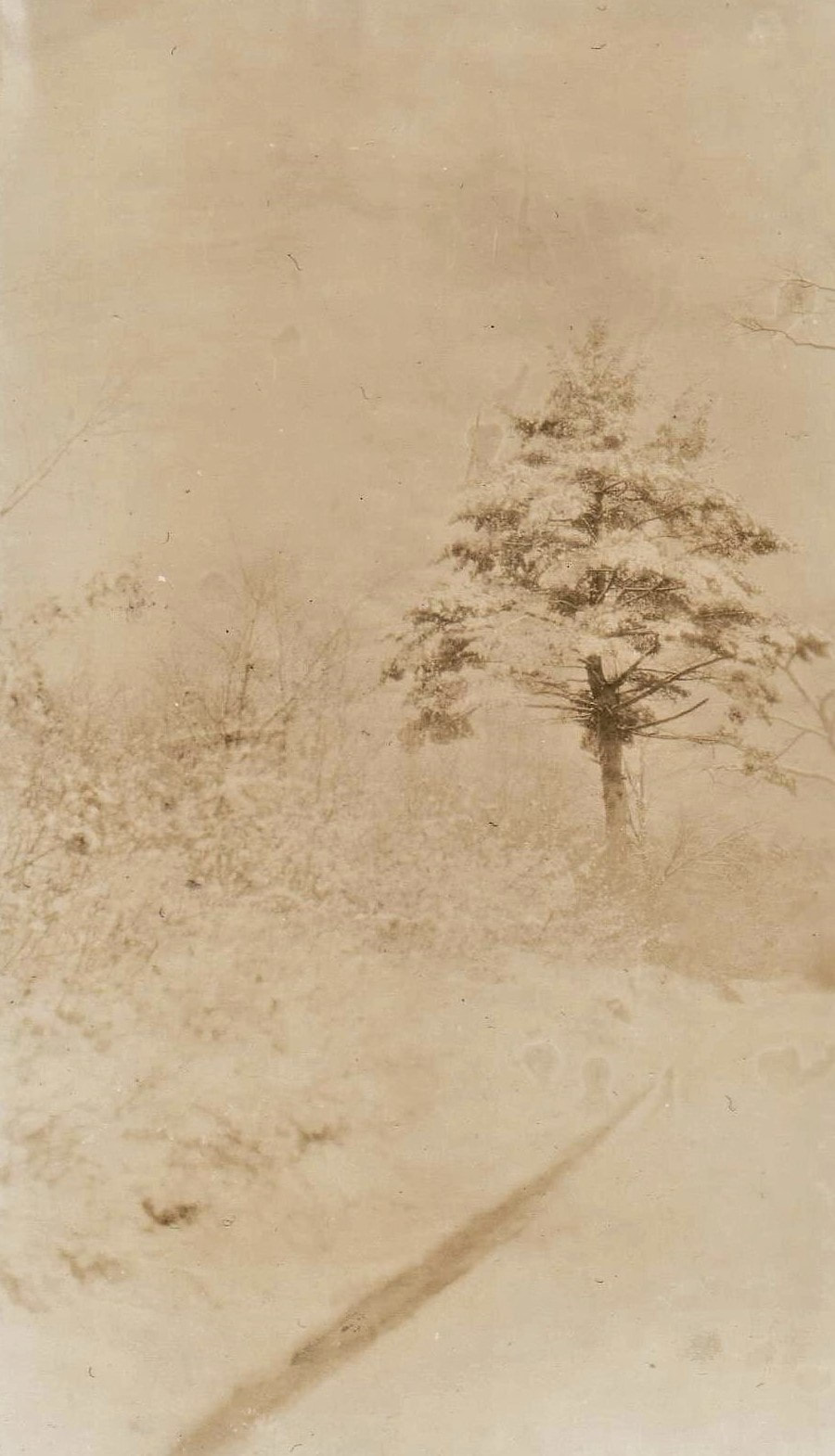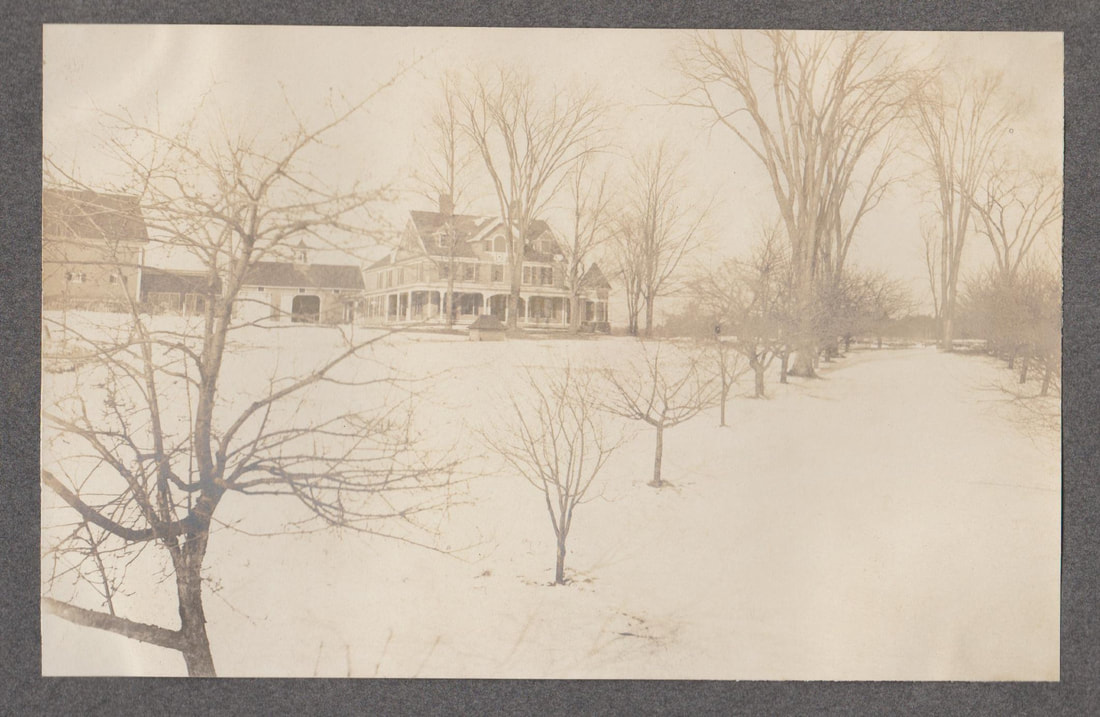"They were from two to four feet in length, and from a foot to sixteen inches in width, and one accustomed to their use could travel with them with ease. The snow-shoe was made of a tough piece of maple or ash, about one inch in diameter, and bent in the shape represented, and the ends riveted together. There were cross-pieces, to which and to the bow of the shoe was attached a strong netting of green hide or leather. The toe of the foot was slipped under the loop of the front cross-piece and fastened, while the heel was left free, though sometimes it would be weighted so as to trail in the snow."
Leonard Morrison preserved an interesting story about British soldier John Hughes, who deserted the British Army to join the patriots. After leaving his regiment, which was stationed in Boston, Hughes made his way to Windham where he trekked through the deep snow of winter to the vicinity of Bissell's Camp. It is there that "he was greatly alarmed by the prodigious tracks of some animal upon the snow. He wished he had not come to such a country, where the wild beasts were so enormous. He sighed for the 'flesh-pots of Egypt' [a Biblical reference to pots of meat] found within the English lines. Had he known all, there was no occasion for fear, for the tracks which alarmed him were merely those of a man on snow-shoes."
In these early times, before the advent of snow plows, "all the men and boys rallied to break out the highways," which were blocked by a winter snow. However, Morrison wrote that the proprietors of Londonderry Turnpike would more often than not neglect to clear the road of snow, relying on the road's heavy traffic to pack the snow enough to make the road passable.
While a team of men may have been able to clear many roadways after a moderate snowfall, there were several significant snow storms and cases of severe winter weather that plagued the town folk of Windham in its first one hundred years of existence. The one of the first "great" snow storm during Windham's existence occurred in October of 1801. In early October came the "Great Muster Storm." Training for the local militia took place in Derry, but when the companies of several towns, including Windham, were called to assemble, not a single company was completely represented on the training field due to a heavy rain. The inclement weather resulted in the dismissal of all the men who had braved the weather to gather for their training, but many were unable to return to their homes by nightfall due to poor road conditions. Major Gage of Pelham, as well as several officers and soldiers, were offered refuge in the home of James Cochran in Windham. By the next morning the rain had turned into sleet and then snow, with strong winds causing significant property damage throughout Windham and surrounding towns.
Another significant snow storm came along in 1816, which has since been referred to as the "Poverty Year" or the "Summer that Never Was." Throughout the nineteenth century Windham's industry was dominated by agriculture and a long period of cold weather meant hardship for many of Windham's farmers. Morrison reported that the corn crop of that year was dismal, but there was a fair amount of apples and potatoes. In June of 1816, snow several inches deep could be found in many parts of the state.
While the snowfall of the winter of 2017-2018 has not been extensive, when recalling blizzards of the recent past or contemplating future snow storms, it may be helpful to remember what Windham residents of the past faced every winter when it came time for snow to fall.

